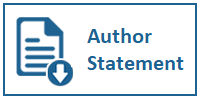GEN Z INVESTMENT DECISION: ROLE OF FINANCIAL LITERACY, INTEREST AND RISK TOLERANCE USING LOGISTIC REGRESSION
DOI:
https://doi.org/10.31937/manajemen.v16i1.3667Abstract
Abstract- The number of Generation Z individuals who invest in high-risk financial instruments is increasing. This trend is interesting because high-risk investments commonly tend to attract older and more experienced investor. This study aims to analyze the impact of financial literacy and financial interest on investment decisions of Generation Z in high-risk assets, with risk tolerance as a moderating factor. Theory of Planned Behavior (TPB) is used to formulate the hypotheses. This study used quantitative method and the data is collected by distributing the questionnaires to the respondents. The sample of this study is 401 Generation Z individuals in Surabaya who are over 17 years old and thus legally able to invest according to Indonesian regulations. We conduct logistic regression analysis to test the hypotheses. The findings reveal that financial literacy does not affect investment decisions in high-risk assets, whereas financial interest has a positive effect. Furthermore, risk tolerance does not moderate the relationship between financial literacy and investment decisions. However, a high level of risk tolerance strengthens the positive effect of financial interest on investment decisions in high-risk assets. This research contributes new insight for investment companies and government to boost financial interest through engaging activities like gamified financial tools and interactive workshops.
Keywords: Financial Literacy; Financial Interest; Generation Z; Investment Decision; Risk Tolerance
Downloads
Downloads
Published
How to Cite
Issue
Section
License
Authors retain copyright and grant the journal right of first publication with the work simultaneously licensed under a Creative Commons Attribution-ShareAlike International License (CC-BY-SA 4.0) that allows others to share the work with an acknowledgement of the work's authorship and initial publication in this journal.
Authors are able to enter into separate, additional contractual arrangements for the non-exclusive distribution of the journal's published version of the work (e.g., post it to an institutional repository or publish it in a book), with an acknowledgement of its initial publication in this journal.















